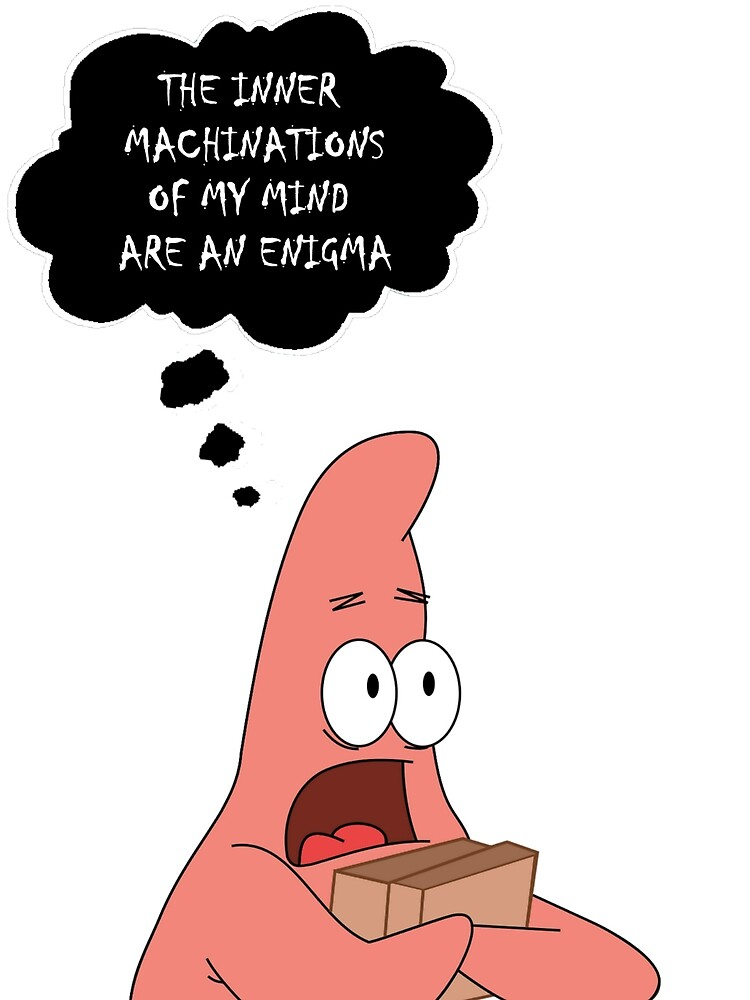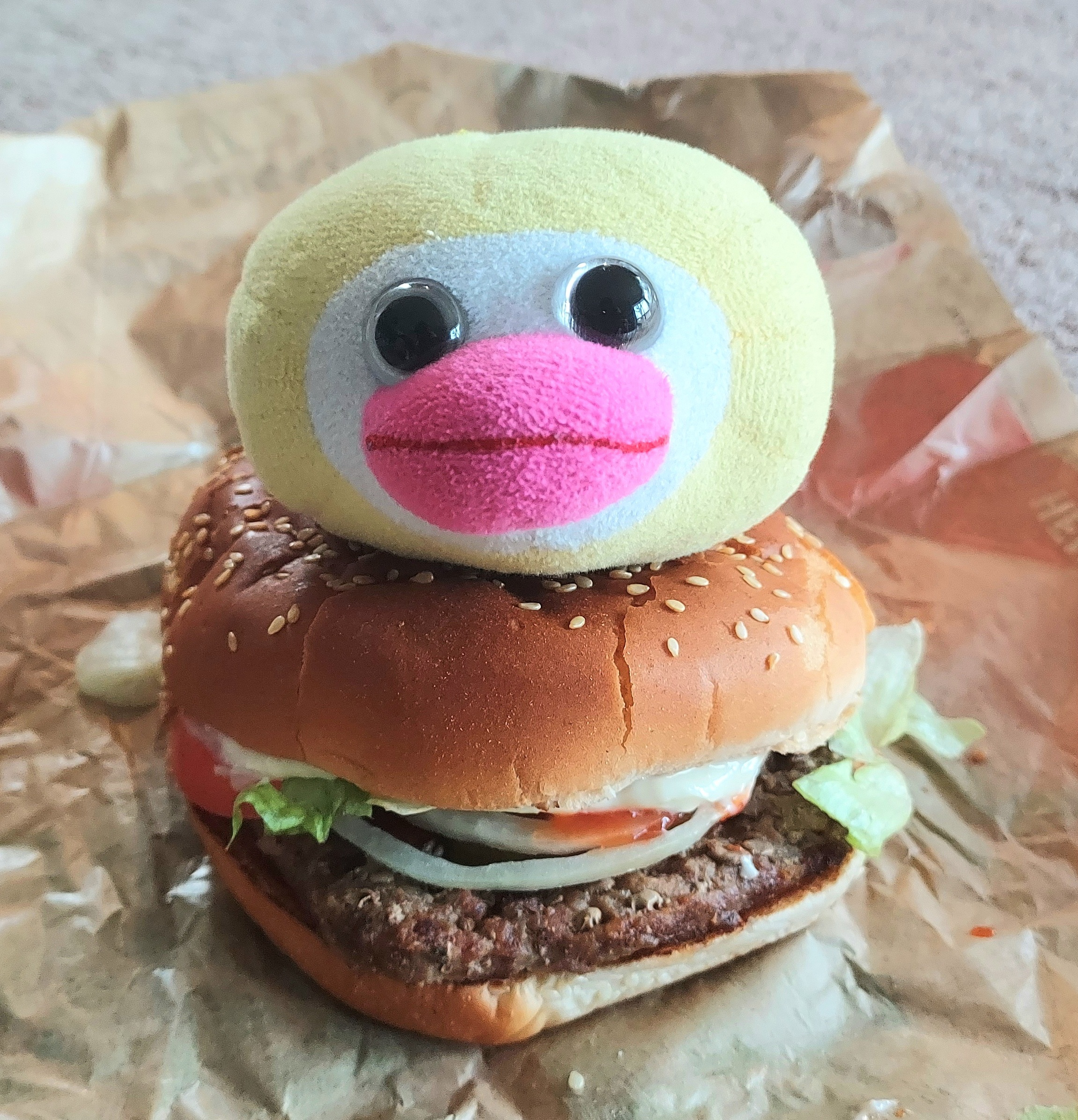So I’m thinking along the lines of this (volume warning)
But my two year old just did the same thing while “helping” to feed the dogs. She spilled a few pieces, looked at the mess, and then dumped out the rest of the cup. She exclaimed, “I make a mess” then picked up the pieces, put them back in the cup, and successfully poured it into the dog’s bowl. What breaks in their brain where the task doesn’t go according to plan so they make an even bigger mess?
I think a partial mistake is just too much for them to process, so their toddler brain would rather finish whatever behavior they started, then figure out what to do next.
Toddler brain: “Oh, I’m spilling my drink… Better spill it all the way, because we need to clean it all off of the floor.”
Okay I have a sudden thought.
You know how sometimes you’ll be, say, walking over a bridge, and your brain will say “YEET YOUR PHONE INTO THE RIVER!” And you’re like “Fuck no, why would I do that?” and you stick your phone in your pocket and move away from the railing?
Call of the void. I’m convinced that this is your primitive brain’s way of reminding you what not to do by creating “dangerous” situations for you to respond to in the appropriate way, because we just don’t run into dangerous situations like that very often in modern societies.
Extending from that, I think that there’s a time in young children where their brains have advanced to be able to do the “call of the void” thing, maybe triggered by an accident with dog food or a bottle of water, but haven’t advanced to where they don’t answer that call.
All of the above is constructed out of pure speculation. But it sounds good to me.
It’s technically called intrusive thoughts. Kids are notoriously bad at impulse control, so this theory has credence.
Yup this sounds like the right answer to me too. Typical intrusive thoughts like we all have, but with no impulse control to stop them from actually doing it.
Your brain doesn’t need to remind you what’s dangerous, your brain is you. By the time your are getting that thought, you already established that it would be wildly stupid to do that. It’s more like planning an exit strategy and stay prepared for the worst case (your phone could drop into the river without you yeeting it).
But your theory still might have merit because without any past experiences to judge a situation, how can you know what’s good and what’s bad?
Another explanation could be that it’s easier to restart a sequence of actions than to correct a mistake in the current one and continue. And babies are not very motorically skilled in the first place, so it’s even harder for them.
your brain is you.
I reject that on principle.
I’m with you.
I’m over here giggling at some other dimensional being swearing and pounding on the controls, asking why the stupid wet wear needs to be so damn clunky and exactly who designed the UI?
Funny, I can feel the feelings of this urge, as I read. (Disclaimer: I am not actually a toddler.)
I can’t dissect my feelings fully, but I think a large part is feeling the anticipation of shame/failure from the whole thing going wrong (e.g. the whole cup of dog food falling out) and as long as you haven’t completed the task, that threat stays there. Spilling a few pieces draws attention to that threat - presumably to warn yourself off it. Throwing the whole thing down gives a wonderful relief: there is no more threat, no more striving for what might not be; what’s done is done. But after that, with the stress gone and the relief come, you feel the clearness to start again.
Adults and even animals do this too. It’s a response to frustration. It’s what’s behind the “tear it down and rebuild it again from scratch” mindset. It stems from perfectionism and neuroticism. A good rule to teach kids is that mistakes are acceptable and nothing will ever be perfect. An existing partially good result is preferable than an inexistent perfect result. Enjoy and trust the process, ignore results for a while, learn from mistakes.
It’s also related to tolerance and flexibility. For example, some people find it intolerable to dirty up or scuff a newly bought item, let’s say a new car or new phone. Being overtly careful or even refusing to use it at all to avoid damage (how people also avoid doing things they fear they will fail at or be embarrassed). But come the first scratch, you now have to live with it. To survive the emotional response to frustration, our brain drops expectations and sometimes overcompensates exciting our aggression impulse.
This is why we recommend people certain exercises of pure exposition to frustration. Like those theater exercises that make you act ridiculous in front of the class, or thought dumping to get rid of writer’s block, or doodling to break in a new sketchbook. It’s like recalibrating emotional responses to be more flexible and tolerant of imperfections. To get comfortable with discomfort and learn to bounce back from failure.
Anytime you get anything nice like a car, first thing you should do is damage it in an unseen area.
It’s over and done and the anxiety is gone.
I mean like a small scratch in the paint under the bumper, not something crazy.
Btw, as someone hauled cars, I have yet to find one that didn’t have a scratch under the bumper unless it was brand new off the rail car, so don’t sweat it, someone has already scratched it long before you bought it.
I think it’s the mom’s reaction that escalates it. If she just said “oopsie nbd”, I don’t think the kid would have spilled it all. In for a penny, in for a pound.
As an adult, I can handle being clumsy, like bumping my elbow or my toe, or spilling. But when I’m trying to be careful, and still screw it up I get really mad. Kids just don’t have a lot of physical coordination so when they mess up despite heroic efforts, it’s really frustrating. It probably feels to them like they’ll never be big enough and strong enough to do it right. Once you’ve messed it up, there’s not much left to lose.
I always thought they just realised that making a mess is more fun, especially if there were no negative consequences the first time.
Nothing breaks, things haven’t grown and developed yet. Like those pudgy, pudding-like non-dexterous hands, the pudding of their brains has to grow and develop too.
If you want to go all basic Piaget on it, rudimentary reasoning starts between ages 3-4y. This is why when a grown man punches a wall he is often likened to a toddler. This is also why some adults go to therapy, to grow and develop stunted coping skills.
For now, they’ll scream, cry, gesticulate wildly, and test the aerodynamic properties of their toys, until they grow into some reasoning capabilities. Developing strength and dexterity isn’t just about physical development.
Do grown women not do this?
It happens to adults too: https://youtu.be/DyddMtbmpuU?t=4m36s
I don’t have an answer, but your post made me think of Patrick.






